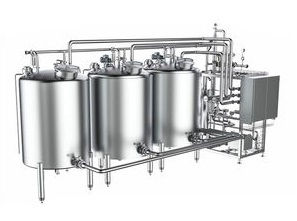Understanding the Essential Stages of Cheese Production
- Anco Equipment
- Apr 28, 2022
- 2 min read

Cheese is undoubtedly everyone’s favorite dairy product as it not only tastes delicious but is also a great source of fat, calcium, and protein. With so many different types of cheese available in the market, most people wonder how it is made.
Cheese production involves seven essential stages and high-quality food processing equipment responsible for giving the cheese its final form. The cheesemaker has to make many decisions, from selecting the milk to treatment procedures and choosing the right food processing equipment.
The stages of cheese production
Step 1: Curdling
The first step in the cheese-making process is curdling the pasteurized milk, which implies the separation of the whey and gelatinous material present in it. Curdling helps coagulate the milk either through microbial enzymes or animal rennet that gives the cheese its texture.
Step 2: Draining
After the curdling, the curd is obtained, so the cheesemaker uses food processing equipment that helps drain the curd to exhaust the watery whey present in it. Whether to press for a long duration more or less depends on the type of cheese that the cheesemaker wants to produce.
Step 3: Salting
The next step in cheese production is adding salt that acts as a flavor enhancer. Salting affects the taste, texture, and appearance of the cheese. It also helps in cutting down the moisture content in the finished cheese.
Step 4: Molding
In this step, the cheesemaker places the cheese in different molds to give it the desired space and size.
Step 5: Pressing
After molding, the pressing of the curd is done to extract more water from the cheese so that it can last for a longer duration. Placing it under a stainless steel press can also help in providing more compactness to the cheese.
Step 6: Refining
The phase of refining is very crucial in the cheese-making process. The cheesemaker places the cheese in a suitable environment where the enzymes induce changes in the cheese's fat and protein content that helps enhance the natural flavors and texture to its optimal tasting.
Step 7: Packaging
Finally, the cheesemaker will cut the cheese and pack them into blocks along with the brand’s labeling and other product details.
Conclusion
Dairy food processing equipment has made the production of high-quality cheese much easier for the cheesemakers as now they can create cheese of the desired quantity without any hassle. If you are looking for high-quality food processing equipment for your cheese production, you can always count on Anco Equipment.




Comments